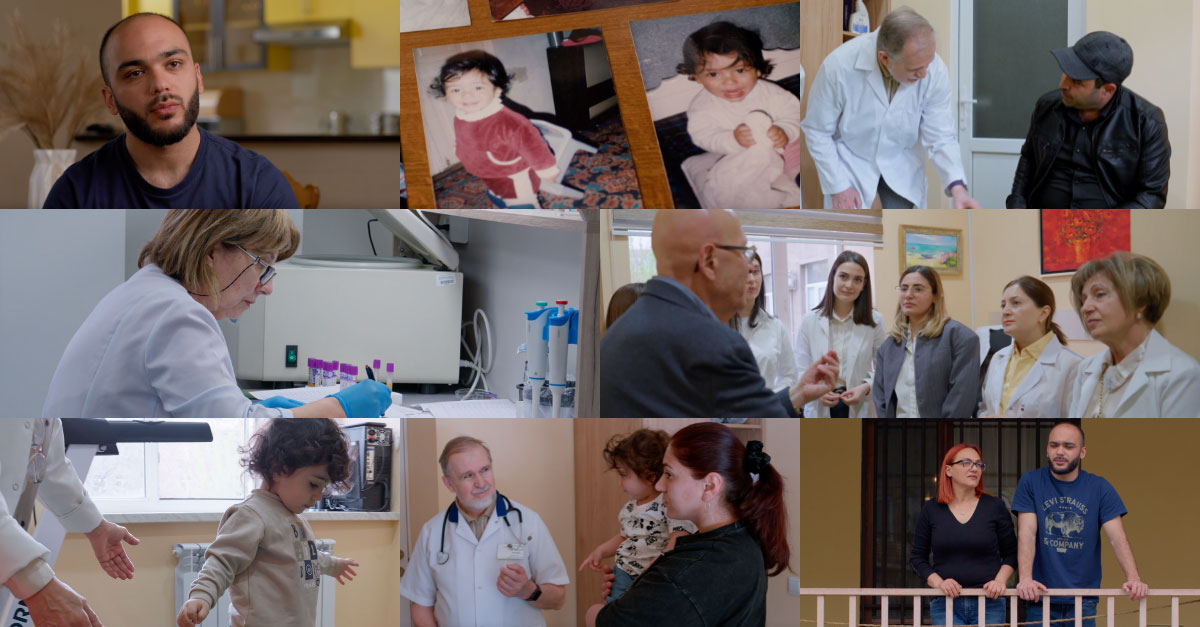Factor was in short supply in Armenia for decades, leaving people like Erik, a young man with hemophilia, unable to safely pursue everyday activities. “Even trying to play guitar would cause bleeding in my fingertips,” he recalls. For many years, his only source of factor was donations from a fellow person with a bleeding disorder in Iran who generously shared part of his monthly medication allowance.
This dire situation changed drastically in 2018, when a formal partnership with the WFH Humanitarian Aid Program led to the strengthening of a hemophilia treatment centre (HTC) in Yerevan and the delivery of regular donations of clotting factor and comprehensive training for medical staff. The result has been a transformation in care.
I used to see severe joint contractures regularly. Now, because patients receive factor early, these complications have nearly disappeared.
—Laura Movsisyan, MD, a physiatrist at the Yerevan Institute of Hematology
The impact goes beyond clinical improvements. Erik, now a medical graduate, says treatment access changed all aspects of his life. “I can ski, hike, help my grandmother in the garden—because I have [factor].” Now he is studying to be a doctor so he can give back to the community.
For Tatiana Khachatryan, President of the Armenian Association of Haemophilia and Thrombophilia, these outcomes are the direct result of sustained collaboration. She explains that all the major changes are a direct result of the long-term support of the World Federation of Hemophilia.
The WFH Humanitarian Aid Program has donated nearly 19 million IUs of factor and over 310,000 mg of non-factor replacement therapy to Armenia since 2015. Over 3 million IUs of factor, and over 50,000 mg of non-factor replacement therapy were donated in 2025 alone. To find out more about the WFH Humanitarian Aid Program please click here.
About the WFH Humanitarian Aid Program
The WFH Humanitarian Aid Program improves the lack of access to care and treatment by providing much-needed support for people with inherited bleeding disorders in developing countries. By providing patients with a more predictable and sustainable flow of humanitarian aid donations, the WFH Humanitarian Aid Program makes it possible for patients to receive consistent and reliable access to treatment and care. None of this would be possible without the generous support of Sanofi and Sobi, our Founding Visionary Contributors; Bayer, CSL Behring and Roche, our Visionary Contributors; Grifols, our Leadership Contributor; and Takeda, our Contributor. To learn more about the WFH Humanitarian Aid Program, visit www.treatmentforall.org.













